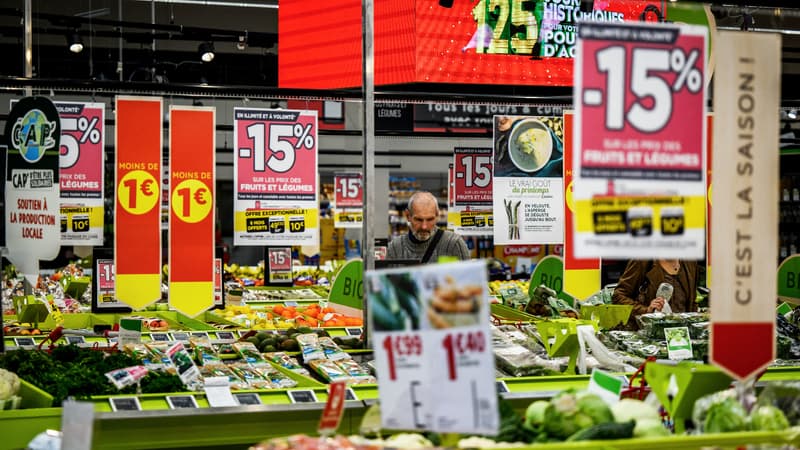Distributors fight back. In a joint letter addressed to the FNSEA, the main large-scale retailers asked that Egalim’s obligations be extended “to home catering operators, as well as industrial wholesalers.”
The crisis in the agricultural world “forces us”, but mass distribution “cannot do everything”, write in this letter, Michel-Édouard Leclerc (E.Leclerc), Alexandre Bompard (Carrefour), Thierry Cotillard (Les Mousquetaires/Intermarché ), Dominique Schelcher (Système U), Philippe Brochard (Auchan), Jean-Charles Naouri (Casino, Monoprix) and Ludovic Chatelais (Cora).
Between them, they represent more than 88% of the French food distribution market, according to reference data from panelist Kantar. The Government plans to present “before the summer” a new text of law to “strengthen the Egalim system” that should allow better remuneration for farmers within the framework of negotiations between distributors and agro-industrial suppliers.
“Less than half of the opportunities”
These bosses, often in the media, call for the issue of farm income not to be addressed “without understanding other means.” Their sector “represents less than half of French farm markets.” For them, “it is time to extend Egalim’s obligations to those dedicated to catering outside the home (restaurants and collective catering, ed.), as well as to industrial wholesalers.”
The day before, Thierry Cotillard had complained to AFP that local authorities were exempt from certain provisions of the Egalim laws. They stipulated “that communities must be supplied with 20% organic or local products for collective catering, we are very far from that,” he observed.
“Charter of good practices”
Large distribution also demands that manufacturers be “forced, under penalty of sanctions, to carry out their negotiations” with farmers before with distributors, and that in this negotiation the price paid to farmers be known. Previous versions of the Egalim laws pursued this goal with generally unsatisfactory results.
The sector continues to propose “working on a charter of good practices” to prevent the use of purchasing and service centers established in Europe from being detrimental to farmers’ income.
“In other sectors, aeronautics, chemicals, Eurocentrals exist” and are “incredible tools” against “the price increases of multinationals” such as Coca-Cola or Nestlé, Thierry Cotillard explained the day before, proposing to exclude them from these negotiations ” products with a strong agricultural component.”
Source: BFM TV


